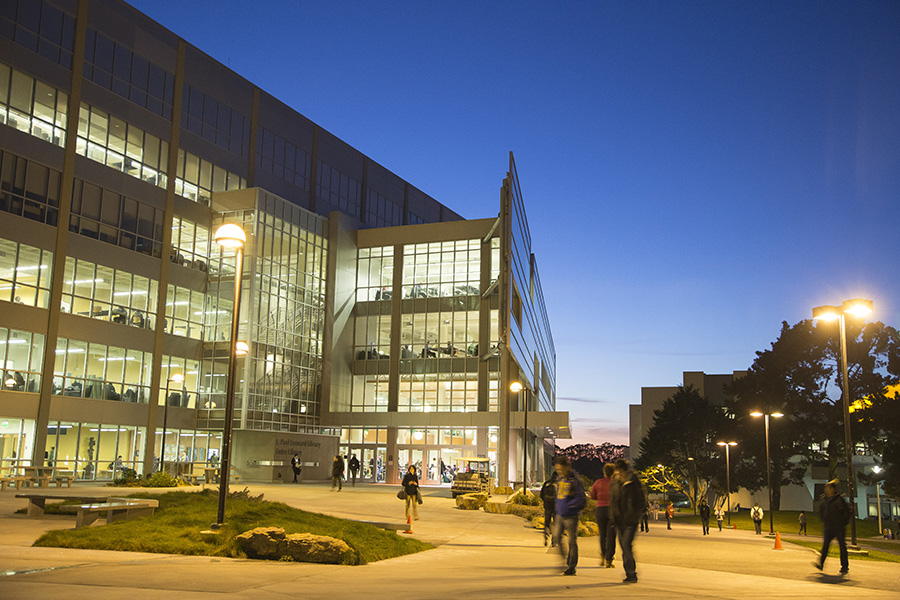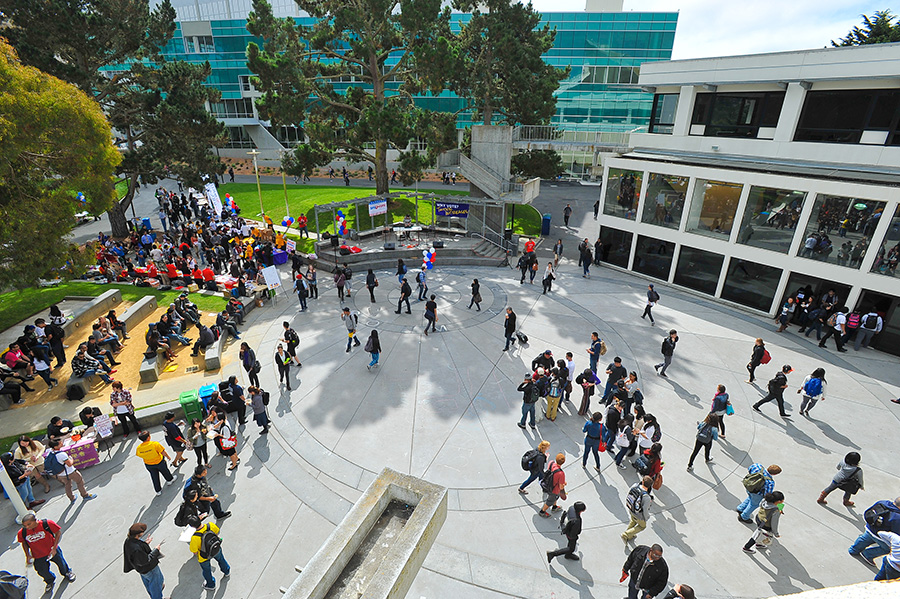College of Education
The Bachelor of Science (BS) in Communicative Disorders (CD) is designed to provide undergraduate students with a clinical science foundation that is rigorous and appropriate preparation for a wide range of clinical, educational, and related fields such as nursing, kinesiology, physical therapy, dietetics, orientation & mobility, counseling, and teaching in primary, secondary, and special education. The CD undergraduate degree also prepares students to acquire the prerequisites necessary to apply for graduate study in speech-language pathology and audiology.
SLHS Student Organizations (https://social.sfsu.edu/content/clubs-organizations):
National Student Speech-Language-Hearing Association (NSSLHA)
Operation Smile
Student Academy of Audiology
SLHS Research Labs:
Gray Matter Lab with Dr. Teresa Gray (teresag@sfsu.edu)
Voice Lab with Dr. Anusha Sundarrajan (anusha@sfsu.edu)
Contact Dr. Betty Yu for more information about her research and labs (bettyyu@sfsu.edu)
Contact Dr. Laura Epstein for more information about her research and labs (lepstein@sfsu.edu)
If you are considering declaring Communicative Disorders as your major, please first read the "Undergraduate Guide to the Communicative Disorders Major"
(https://slhs.sfsu.edu/sites/default/files/assets/pdf/UG_Major_Guide_Sp19...). You can also get involved in the SFSU chapter of the National Student Speech-Language-Hearing Association (NSSLHA) https://nsslhasfsu.weebly.com.
Other notes to consider:
- The entry-level degree for speech-language pathology and audiology is a Master's degree.
- Students can participate as a clinic aide in the university clinic after the fall semester of their junior year.
- Tutoring is available for juniors; seniors serve as tutors for challenging major courses.
Access the list of the major requirements to better understand the structure of the major.
The roadmap puts all of your graduation requirements into an easy-to-follow semester-by-semester plan so you know what to take to stay on track. Whether you are a freshman or a transfer student, you'll be able to find a roadmap that best fits you.
Besides your major requirements, students must complete their GE and University requirements. Be sure to make sure you've completed all of these requirements for graduation.
To learn more about this major, check out the major department’s website below. You can also find out how you can access their faculty advisors who can assist you not just with course choices, but also answer questions about the field and discuss your career plans.
Department of Speech, Language and Hearing Sciences
Burk Hall Building, Room 114
Phone: (415) 338-1001
Email: slhsinfo@sfsu.edu
Website: https://slhs.sfsu.edu/
Chair: Laura Epstein
Freshmen Student Advising Information
After choosing “Basic Subjects” GE courses in Steps 1-3 of your Orientation process (if you haven’t done so, log onto your Orientation Profile page to follow the “Pre-Orientation Advising Module”), STEP 4 Choosing Major Classes will show you if there are any classes you can take to satisfy major requirements for your first and/or second semester.
Once you have determined your Roadmap above, review the first section below and write down any course recommendations based on your corresponding major roadmap on your Freshmen Class Planner worksheet.
First Semester Course Recommendations — Roadmaps A, B, C & D
|
Major Class & Title |
Units |
Other Requirement Area(s) Met |
|
No major SLHS courses are available during freshmen year |
- |
- |
|
SLHS Requires Stats for Math: Choose between
|
3 units |
B4: Quantitative Reasoning |
|
SLHS Major requires courses in the following areas that can overlap with General Education. At least one is encouraged your first semester:
|
|
|
|
If there are any course(s) listed above, please enter this information onto “Step 4” of your Freshmen Class Planner. |
Advisor Footnotes:
-
No major courses until students reach junior standing
-
Frosh should focus on GEs first two years
-
No major worksheet; use roadmaps!
-
Major is small enough to easily accommodate minors
-
AP scores accepted for major:
-
Statistics
-
Biology
-
Chemistry
-
Physics 1, 2 or C (score of 4 or 5)
-
Psychology
Once you have made your course choices for Steps 1-4, you may already have between 12-15 units chosen for your first semester—about 4 to 5 classes.
If more units are needed, you will proceed to "Step 5 - Choosing GE Courses" from your Orientation Advising Module after considering the following recommendations...
|
GE Area |
Advisor Notes |
|
A1 Oral Communication |
Covered in “Step 3” on Class Planner |
|
A2 Written English Communication |
Covered in “Step 1” on Class Planner |
|
A3 Critical Thinking |
Covered in “Step 3” on Class Planner |
|
B1 Physical Science |
Physics or Chemistry |
|
B2 Life Science |
Biology or anatomy |
|
B3 Laboratory Science |
With either B1 or B2 |
|
B4 Quantitative Reasoning |
Select a statistics option |
|
C1 Arts |
There are major courses for this area |
|
C2 Humanities |
There are major courses for this area |
|
D Social Sciences |
A Psychology, Sociology, or Anthropology option |
|
D US History |
There are major courses for this area |
|
E Lifelong Learning & Self-Development (LLD) |
Covered in “Step 1” on Class Planner |
|
F Ethnic Studies |
There are major courses for this area |
|
US/CA Government |
Choose any |
A Master's degree is required: Speech-language pathology, Audiology.
A Master's degree or credential is required: Elementary or secondary teaching, Early childhood, Special education.
Transfer Student Advising Information
Please see the box above labeled “Major Curriculum/Roadmaps & GE/University Requirements” for information on what courses to take in your first semester at SF State. View our Frequently Asked Questions for Transfers for helpful tips and additional information.




